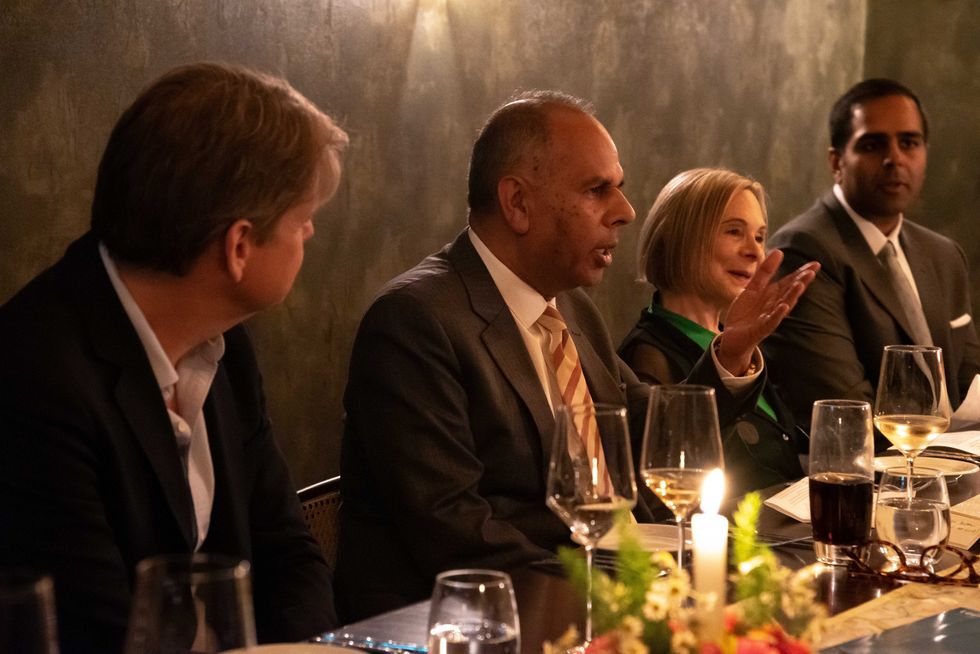During his lifetime, Mahatma Gandhi spent 21 years living in South Africa, a period that stands out in his long and eventful journey. Before emerging as an icon of Indian independence and becoming one of the towering figures of the 21st century, Gandhi resided in Britain's southern African colony from 1893 to 1915.
During this time, his views on colonialism evolved, and he developed the hallmark of his campaign of peaceful protest, the Transvaal March, to contest a ban on Indian immigration.
But sadly, today the physical legacy of Gandhi's historic stay in South Africa is deteriorating due to a lack of funds, says his granddaughter.
The house in the eastern town of Phoenix where he lived and housed his newspaper has now become a museum, but unfortunately, it is falling into disrepair. The turquoise paint has lost its shine, several windows are shattered, and the roof is leaking.
"If we allow the settlement to be dilapidated completely, his memory will be lost," Ela Gandhi, 82, who lives in nearby Durban, told AFP.
In her capacity as the head of the Phoenix Settlement Trust, she oversees the management of the museum and the provision of food aid, temporary shelter, and computer literacy classes to impoverished individuals.
The trust had been funded by the nearby port city of Durban's municipality for several years to preserve Gandhi’s legacy. However, the funding has recently been discontinued.
As the granddaughter and a former lawmaker, she believes that the Trust's efforts contribute to improving the strained relations between the residents of Phoenix, who are mostly of Indian descent, and the predominantly black community of Inanda.
"Until last year we were receiving some funds from the municipality to enable us to continue and grow our programs; now it has stopped," Gandhi said.
Prior to the cessation of funding, the town had been receiving 40,000 rand per month, equivalent to roughly $2,100.
The municipality declined to comment in response to a request for their perspective.
During British Colonial rule in the 19th century, hundreds of thousands of Indians arrived in South Africa to work on sugarcane plantations on the east coast. Gandhi came to South Africa when he was in his early 20s to represent an Indian businessman in a legal matter.
Nearly a decade later, he acquired 100 acres (40 hectares) of land in Phoenix where he invited some of his friends to join him and create a self-reliant community, which eventually became a seedbed of the Satyagraha philosophy of non-violent civil disobedience.
Although Gandhi is revered by many in South Africa, some individuals argue that he held racist beliefs.
In 2015, protesters in Johannesburg vandalized Gandhi's statue by painting it white. Gandhi had used racial slurs in some of his writings, and had claimed that Indians were "infinitely superior" to black Africans.
Vishwas Satgar, an international relations professor at the University of the Witwatersrand in Johannesburg, acknowledged that Gandhi was a "product of colonialism" who initially believed that white colonial society was the epitome of civilisation.
However, Satgar argued that Gandhi was transformed by his experiences in South Africa, which was a pivotal period in his life. "He displayed something very important, that human beings are capable of transformation," said Satgar.
According to Gandhi, the house-museum illustrates how her grandfather underwent a transformation in his life, and she addresses his views on race and other topics.
Nevertheless, she is seeking new sources of funding to maintain the Trust, but fundraising has been difficult due to the challenging economic climate post-pandemic.
"It's been a tough market to fundraise for historical sights post-pandemic," Sello Hatang the Nelson Mandela Foundation's chief executive, stated.
In 2021, Liliesleaf, a farm that served as a safe house for Mandela, was compelled to cease operations indefinitely due to years of insufficient funding. Hatang stated that maintaining these sites "is no longer viewed as a priority by donors."
(With inputs from AFP)















 The event was hosted by Kalpesh Solanki, Group Managing Editor of Asian Media Group and President of the 100 Club.
The event was hosted by Kalpesh Solanki, Group Managing Editor of Asian Media Group and President of the 100 Club. 

